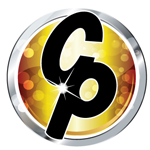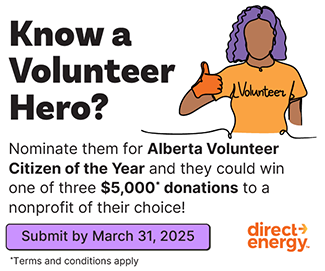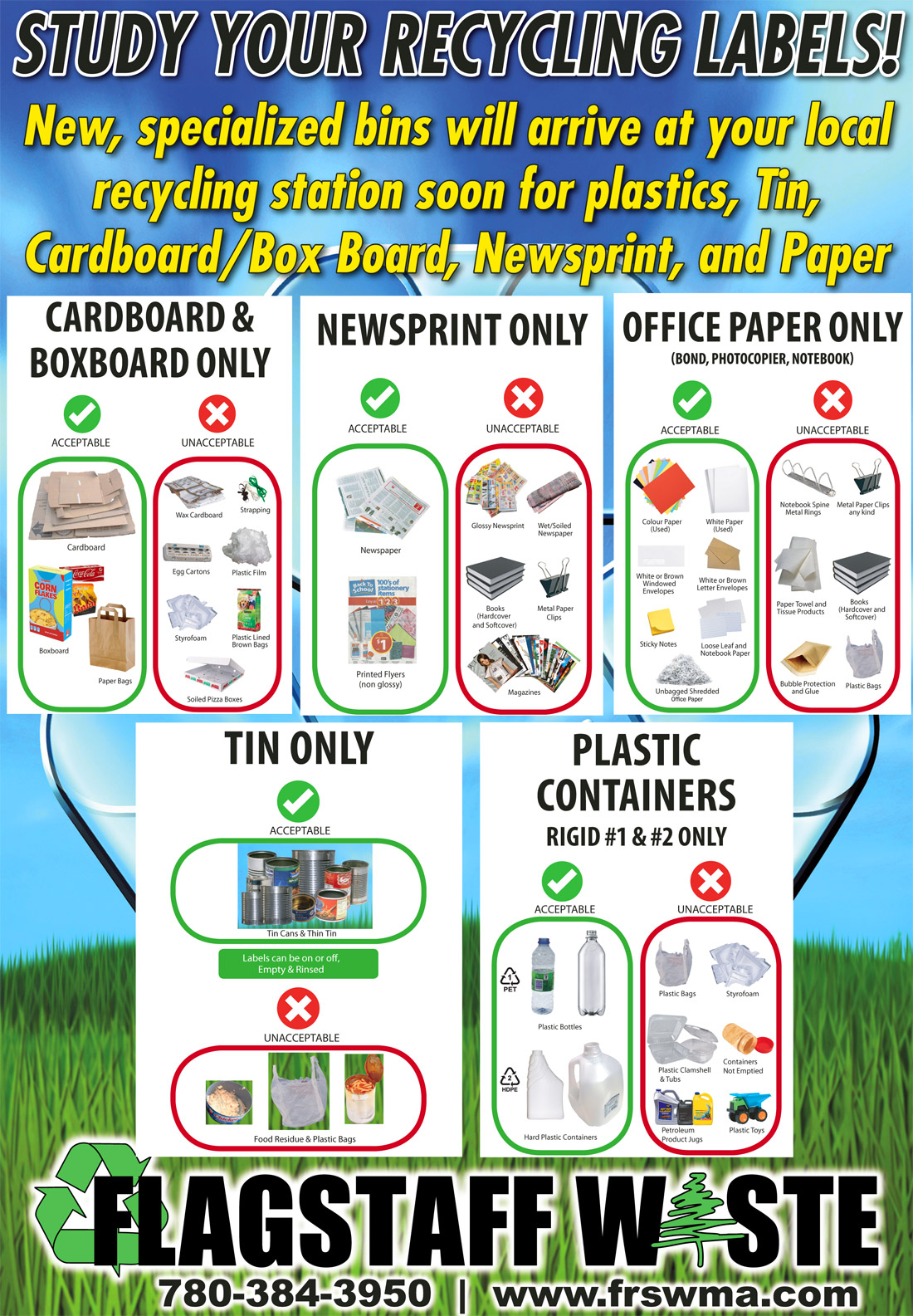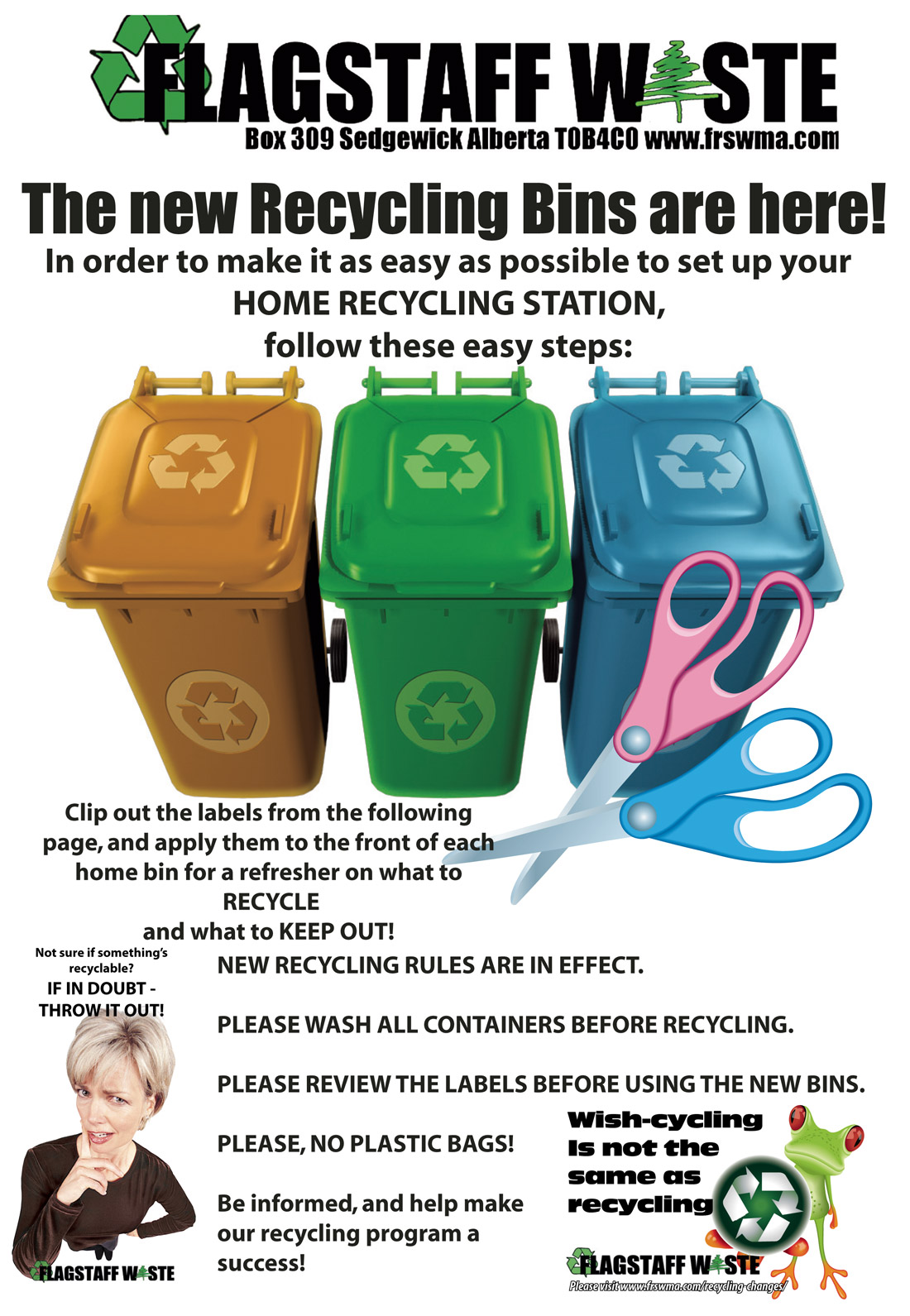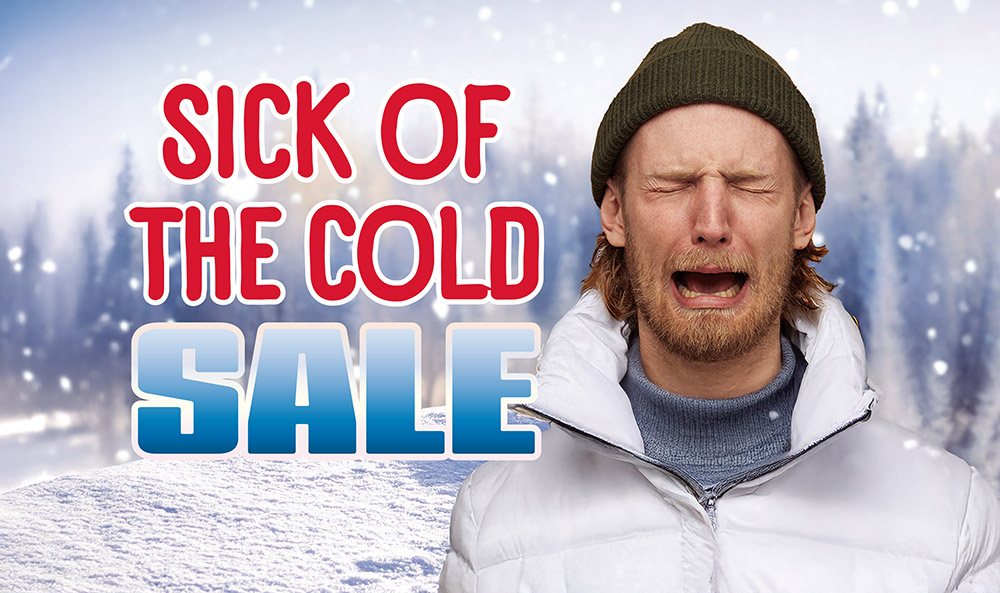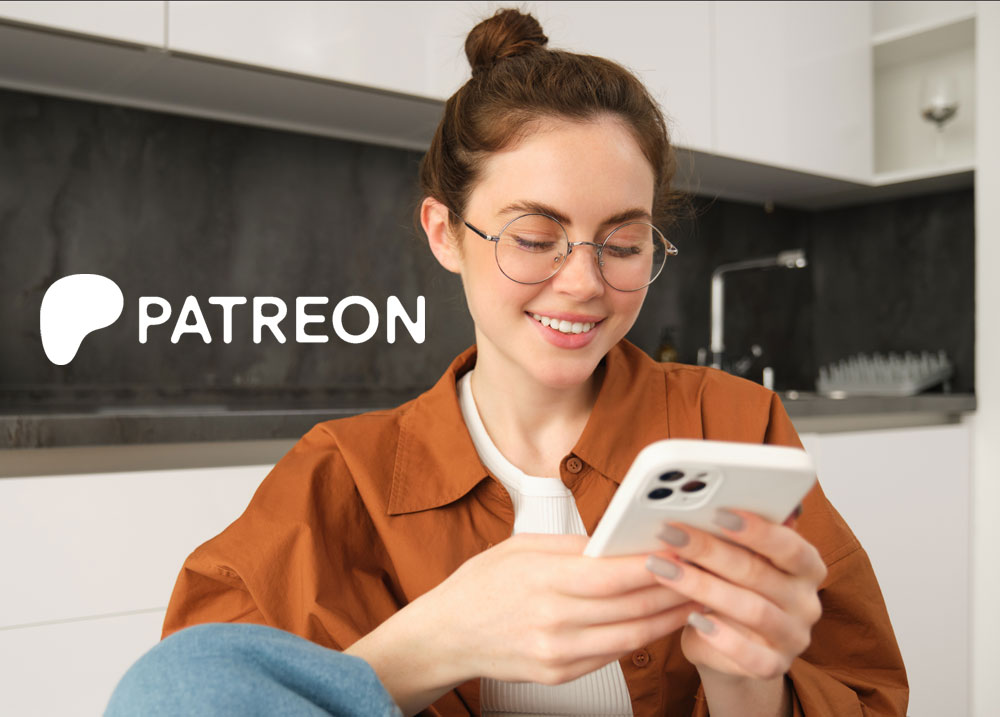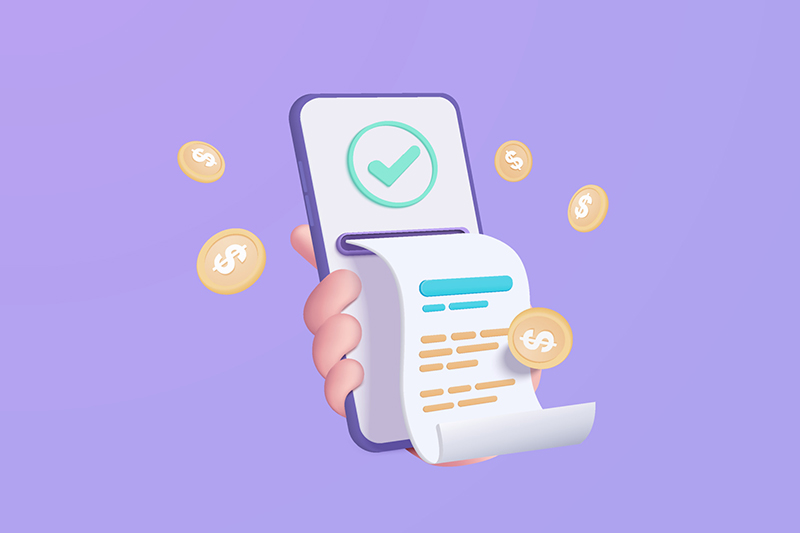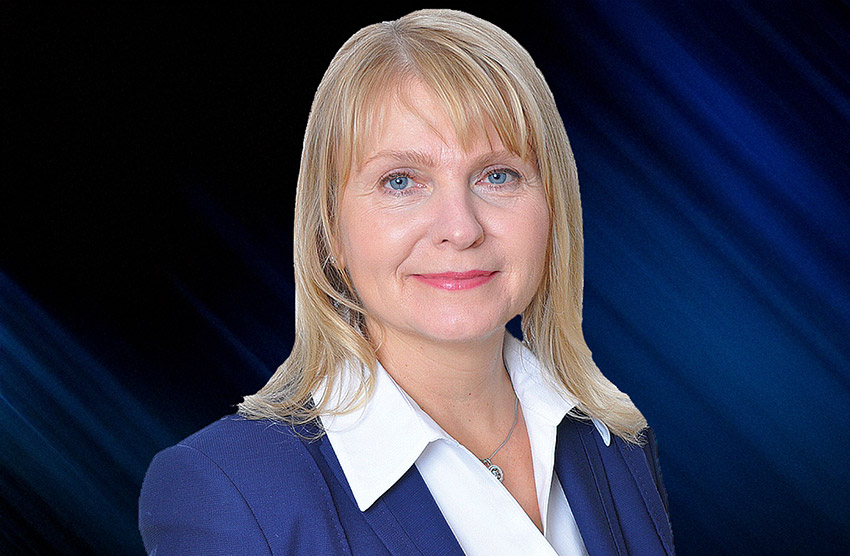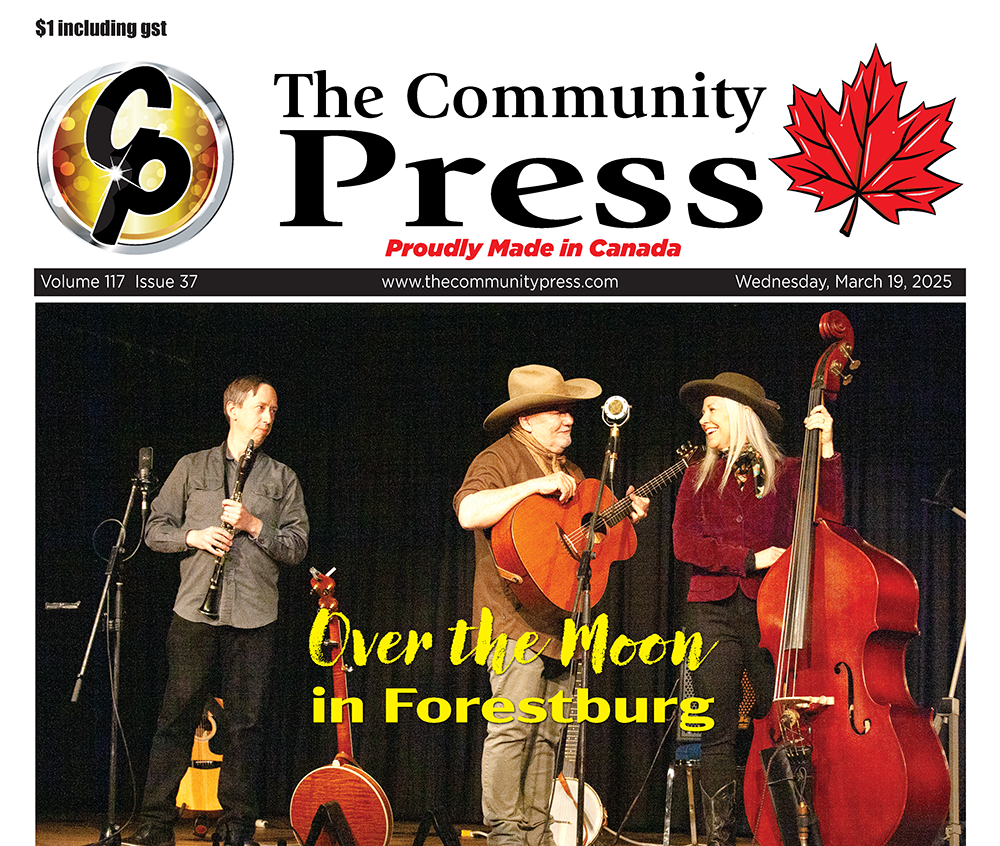Flagstaff Waste rolls out new recycling stations across the region
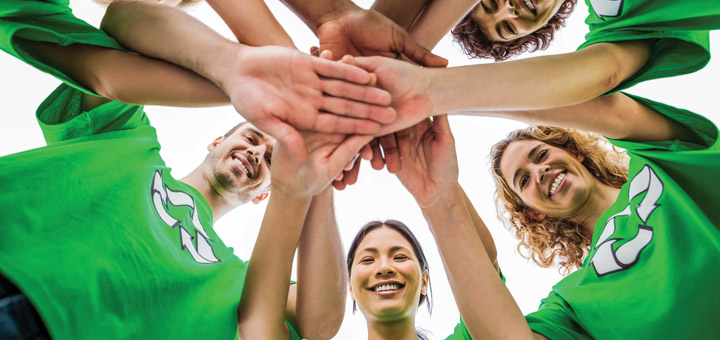
When the single largest importer of plastic in the world virtually closes the doors to everyone else, demanding near perfect sortation, the ripple effect even comes as far as East Central Alberta.
China closed its doors to all but the purest, cleanest loads starting January 2018, dropping their acceptable levels of contamination down to 0.5 per cent.
For Flagstaff Waste Management’s relatively small household recycling program, that means making a decision to only accept recycling items that are marketable. The rest goes in the landfill.
“Marketable is defined by quality,” says Flagstaff Waste Manager Murray Hampshire. “More damage is done to our recycling program by putting dirty items in, or the wrong items in, than by recyclable items accidentally going in the landfill.”
Flagstaff Waste and its owner-partners, every municipality in Flagstaff County and Rosalind, know that recycling is important to many people, and their new program is about trying to find that middle ground where items can be easily recycled, with loads of the correct types of recycling that’s clean and has a marketable value.
The program runs for pennies per household per month, and Hampshire says it has a good chance of success, but only if we play by the new rules of recycling.
Throughout the region, recycling stations are being revamped, with brand new bins, clearly marked, for the following items: clean number one and number two plastics, without lids; clean tin cans; clean cardboard and box board; newsprint; and uncontaminated office paper.
This new, streamlined recycling program will work only as long as users make an effort to put the right things in the right bins.
The new program works best when items come from home recycling stations, as Flagstaff Waste has neither the manpower nor the budget to sort the items in the bins.
Hampshire says the bane of our recycling program is plastic bags. “We don’t want them, we can’t recycle them, and they contaminate the loads, no matter what’s inside.”
He says the biggest concern he has for the new program is wish-cycling users.
Wish-cycling is when in the course of collecting household items to be recycled you’re wishing something could be recycled, or wishing that you are correctly guessing if it goes in the bin.
Until the program becomes second nature, the best advice coming out of Flagstaff Waste is, “If in doubt, throw it out.”
Plastic clamshells, styrofoam, batteries, dirty containers, oil-stained cardboard… these are all examples of what cannot be recycled.
Hampshire and Flagstaff Waste Diversion Operations Coordinator David Dahl have created informative labels for each bin with examples of what is acceptable, and what is not.
Recycling is not as easy as just throwing it in a bin, and if that’s what you want to do, then the bin you choose should be the garbage bin.
It’s as simple as that, if Flagstaff residents aren’t willing to do the preparation work on their recycled items, then the program is likely to cost more than it’s worth.
The bins for the new recycling program represent a financial investment from every Council in Flagstaff, based on the desire to not just have an option for recycling, but to have a successful recycling program.
The key to success, Hampshire believes, is education. He’s hoping to hold a few recycling information sessions within the region that will give participants a chance to actively sort through typical household waste to determine what items are recyclable, and more importantly, what are not.
A bin full of recycling represents hundreds of man hours from many people, many of whom have taken the time to do it right.
Throwing garbage into a recycling bin is showing complete disrespect for the program, and for every other person using the program.
The best advice to achieve the purest flow of recycling is for those people who aren’t interested in doing it to feel free not to.
Hampshire says he is worried about a situation where residents find out that something isn’t recyclable only when they hit the recycling station, and is looking into the possibility of having garbages for, plastic bags, those items, plastic bags, that are often used, plastic bags, to gather, store or bring recyclables to the station, like plastic bags.
He says he’s delighted to see that local grocery stores and other retailers sell reuseable grocery bags, something he encourages residents to try.
Hampshire says that plastic bags are such a problem that some municipalities have actually banned them from being used.
Otherwise known as “single-use shopping bags,” these items were banned in the Regional Municipality of Wood Buffalo (Fort McMurray) September 2010.
Hampshire also says that if, after sorting for recycling, you’re left with a lot of packaging items that are not recyclable, think about complaining to manufacturers about excessive packaging.
“We can ask retailers to be more eco-friendly, and we can drive change by buying items with less packaging.”
Hampshire and Dahl are also hoping to start some kind of Recycling Ambassador program, where volunteers who are well-informed about the program are willing to spend time out at recycling stations, or talking to people, to educate residents about how to prepare recycling properly, tips for good recycling, tips for storing and transporting recycling, just in general how to be a better recycler.
PLASTICS:
Every recyclable rigid plastic container has a bottom mark with a triangle made up of three arrows with a number inside. Only those items with a 1 or a 2 are recyclable through this program.
The lids of every container must be removed, they are not recyclable.
All containers should be rinsed out. Even a dribble of laundry detergent or fabric softener left in the bottom of a container can cause load contamination.
Plastics that are NOT acceptable are any numbers other than 1 and 2; plastic bags, styrofoam, plastic clamshell containers, dirty containers, plastic toys, and agricultural or commercial plastics and jugs or pails that contain(ed) any petroleum products.
TIN:
As the name implies, there will be a bin that is entirely for empty tin cans and thin tin. For tin cans, labels can be on, or off, but the cans must be empty and rinsed.
“A great time to wash them out is with the used dishwater,” says Dahl. “They can be left to dry overnight, then placed in your home recycling station.”
Tin cans inside plastic bags are not acceptable.
Tin cans with any kind of food residue are not acceptable.
Putting dirty cans in the bin can contaminate the entire load.
CARDBOARD:
Good cardboard can be easily identified by the squiggly inner layer between the edges. Box board can take the form of cereal boxes, beer and pop cases, and paper bags are also acceptable in the cardboard bin.
The biggest issue with cardboard is food contamination. One oily, stained pizza box can ruin an entire load.
Types of materials that do not fit the current recycling standards for cardboard are: waxed cardboard, like fruit boxes; plastic strapping that held the box together; plastic bags; egg cartons, which are neither paper nor cardboard under current definitions; styrofoam or bubble packing; plastic film; plastic-lined bags, like pet food bags; and dirty cardboard, like soiled pizza boxes, or moldy boxes.
NEWSPRINT:
The paper recycling program is the most stringent, and has the potential to be the easiest to follow.
The newsprint bin accepts newspapers, and non-glossy flyers. That’s it.
No magazines, no books, no wet or soiled newspapers, no catalogues, no paperbacks. No elastics, no strapping, no metal paper clips. No plastic bags. No boxes. No paper towels. No apples.
The hardest part for recyclers here should be determining which types of flyers are acceptable, and the most helpful advice from Hampshire is, “If in doubt, throw it out.”
OFFICE PAPER:
This bin takes the widest variety of household items, but still has the potential to be misused.
Acceptable paper includes coloured paper, used; white paper, used; white or brown window envelopes; white or brown letter envelopes; sticky (post-it) notes; looseleaf or notebook paper, used; un-bagged shredded office paper.
Unacceptable items include: plastic bags; books, magazines, bubble envelopes, paper towels or tissue products, notebook or binder spines or covers (usually plastic and cardboard), and metal paper clips of any kind.
The recycling program is 100 per cent voluntary.
No one is required to recycle, and if you’re not sure what you’re doing, you can do more harm to a load than good.
There are many good reasons to recycle, however, not the least of which, for Flagstaff residents, is to extend the life of our existing landfill, in order to put aside enough capital for post-closure costs as well as a replacement or new pit.
Recycling as a family can also be very effective, perhaps putting different family members in charge of different types of recycling. Before your recycling even leaves the house, let the ‘experts’ make sure everything is good to go.
Ultimately our recycling program is only as good as the effort we put in.
Originally published in the October 10 edition of The Community Press – copies STILL available by phoning The Community Press 780-385-6693 or coming into our office in Killam. Never miss an issue, become a SUBSCRIBER today!
Leslie Cholowsky
Editor
